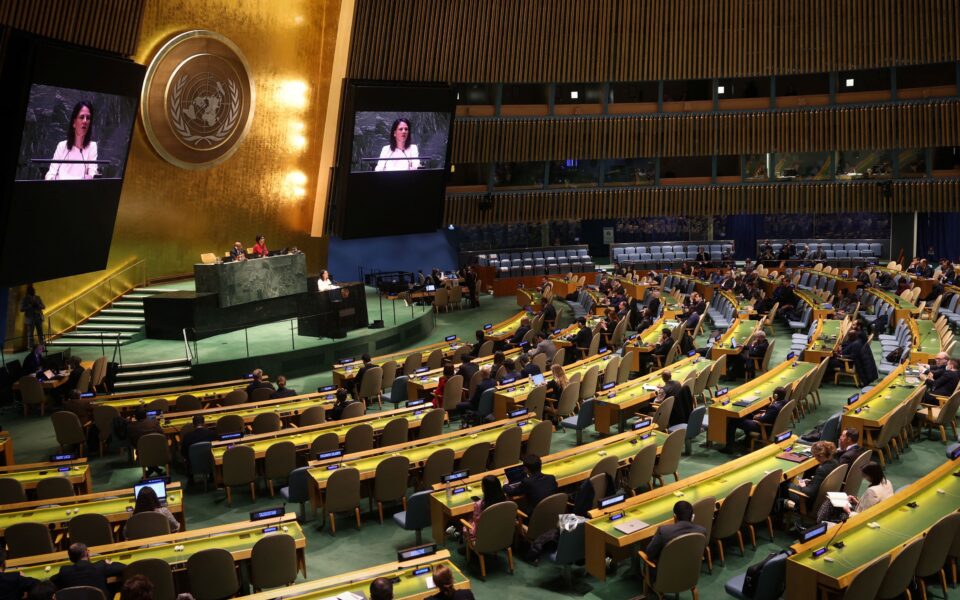Greece votes in favour of Palestinian resolution at UN General Assembly


Greece has backed the UN resolution, which is based on the opinion of the International Court of Justice (ICJ) in The Hague, regarding the serious consequences of Israel’s policies in Gaza and the West Bank.
Well-informed sources told Kathimerini that the Greek vote was dictated by two main considerations: first, because Greece enters the UN Security Council as a non-permanent member from January 1, and hence there is a need to maintain good relations with the states of the so-called Global South, with Foreign Minister George Gerapetritis scheduled to have dozens of meetings in New York next week ahead of the new year.
Secondly, Athens firmly supports international justice and in this particular case the UN decision is also based on the opinion of the ICJ regarding the occupied territories. In short, Greece took a principled stand, as Greek diplomacy defends international law as a tool of universal and not selective application.
Greece had beforehand informed Israel of its intentions as necessitated by the strategic relations of the two countries. Indeed, an explanation of the Greek vote was also announced, repeating everything that Greek diplomacy has supported in the last 11 months, about the October 7 attack, the release of the hostages, and the security of Israel.
The explanation stated, among other things, that the resolution made no reference to the need to hold direct negotiations between the parties to work toward a two-state solution, which has been the international community’s consistent position for decades.
However, Greece decided to vote in favor of the resolution based on Greece’s undivided support for international law and the institution that embodies it, the ICJ.
The explanation said further that it is Greece’s belief that the work of the ICJ must be protected, even in the event of a dispute. International law and the rule of law are at the heart of the United Nations Charter and serve as a shield against all forms of violations, it said.
A total of 13 EU member-states voted in favor of the resolution: Greece, the Republic of Cyprus, Belgium, Finland, France, Ireland, Portugal, Luxembourg, Malta, Slovenia, Spain, Estonia and Latvia.
Twelve countries (Austria, Bulgaria, Germany, Croatia, Denmark, Italy, Netherlands, Poland, Romania, Slovakia, Sweden and Lithuania) abstained, while the Czech Republic and Hungary voted against.
Source: ekathimerini.com




